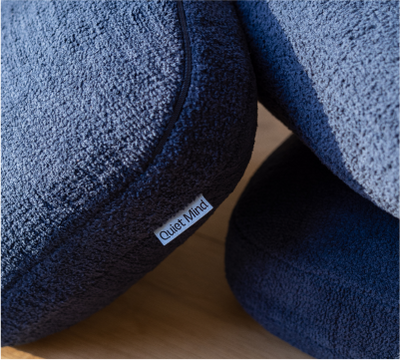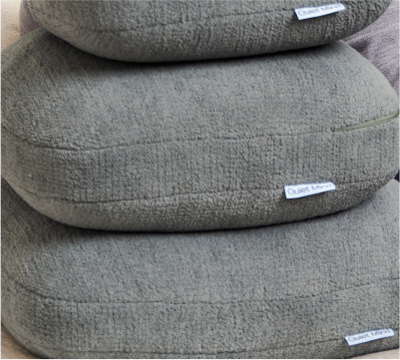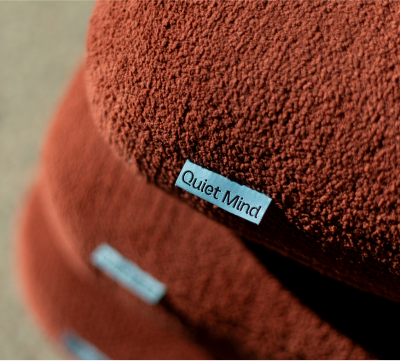Stress is a natural part of life. Everyone experiences stress, whether from deadlines, changes, or daily demands. But when it lingers too long, it can start to wear down both your physical and mental health. The way your body responds—known as the stress response—is designed to protect you. Yet over time, this same response can take a toll.
The good news? You don’t need to eliminate stress completely. You can learn how to reduce daily stress, reset your nervous system, and respond with steadiness. Through simple routines, supportive tools, and moments of self-awareness, you can lower your stress levels and reclaim your sense of calm.
You don’t have to do everything at once. Just begin gently, and with care.
Understanding Stress and Its Impact
Stress is a natural physiological reaction. It alerts you to potential threats and helps you work harder, adapt faster, or stay safe. In small doses, stress can even be motivating—this is sometimes called good stress.
But chronic stress can shift from helpful to harmful. Research shows that high stress levels may contribute to chronic inflammation and weaken immune response, making the body more vulnerable over time. When the causes of stress are constant or intense, your body remains in a heightened state for too long. This can affect your sleep, digestion, focus, mood, and even immunity.
Stress can cause:
- Muscle tension in your neck, back, or shoulders.
- Changes in appetite, such as emotional eating or skipped meals.
- Difficulty getting enough sleep or staying asleep.
- Trouble concentrating or forgetfulness.
- Feeling emotionally reactive or overwhelmed.
These aren’t signs of weakness. They’re symptoms of stress — important signals that something inside needs attention.
Preventing Stress Before It Builds
While you can’t avoid stress completely, you can reduce how often it builds up and how intensely it affects you. Early warning signs of stress often appear before we’re even aware we’re under strain. Managing stress doesn’t mean doing more—it means designing your life to support you.
Time Management and Prioritization
Disorganization and overwhelm often come from unrealistic expectations. You don’t need to control time, but you can create more peace within it.
- Break big projects into steps to avoid mental clutter.
- Use calming planning tools (like a gentle checklist or calendar.)
- Focus on one task at a time—deep work beats multitasking.
- Leave buffer space in your day to breathe.
Managing your time well can dramatically lower your daily stress and support your mental well-being.
Setting Boundaries and Saying No
Saying yes to everything can be a stressor all its own. Learning to say “no” is one of the most impactful ways to beat stress before it escalates.
|
Boundary Practice |
Why It Matters |
|
Limit after-hours work |
Preserves energy and restores work-life balance |
|
Communicate needs clearly |
Reduces resentment and stress due to assumptions |
|
Say no without guilt |
Protects emotional space and supports self-care |
Boundaries aren’t barriers. They’re a form of care—for you and others.
Joyful Activities and Relaxation
You don’t have to wait for a vacation or a crisis to reconnect with calm. Small, intentional moments of pleasure and rest can gently pull you out of stress and back into balance.
Stress often keeps the body alert and the mind racing. Joyful activities work in the opposite direction: they soften the nervous system, bring you into the present moment, and remind your body what ease feels like.
Some calming options include:
- Taking a slow walk with no destination.
- Creating with your hands—drawing, baking, painting, or planting.
- Watching a comforting show or listening to music that soothes you.
- Making time for “joy pockets” throughout the week—moments of lightness, comfort, or play.
To deepen these restful experiences, many people find sensory grounding especially helpful. Engaging the senses—through texture, weight, scent, or warmth—can signal to the body that it’s safe to let go.
With its soft, steady weight, Quiet Minds weighted pillow may offer a sense of safety—helping the body settle and the mind feel more at ease. Whether you’re curled up with a book, taking a break on the couch, or simply pausing between tasks, having a comforting object nearby can create a sense of safety and grounding.
Effective Ways to Reduce Stress
There’s no one-size-fits-all solution, but there are many effective natural ways to help reduce stress in daily life. The key is to support your nervous system—physically, emotionally, and relationally—so it doesn’t stay stuck in survival mode.
Physical Activity and Movement
Movement helps reset the stress response. It’s one of the best natural tools to relieve stress, lower blood pressure and heart rate, and help you feel more grounded.
Try:
- A brisk walk outside to reduce mental clutter.
- Yoga or stretching to ease muscle tension.
- Strength or resistance training to feel physically strong.
- Dancing, biking, or swimming—anything that feels good.
Any form of physical activity counts. Even just 10–20 minutes can support your overall health, release endorphins, and help lower blood pressure naturally.
Mindfulness and Meditation Practices
If your mind feels stuck in loops of worry, gentle mindfulness practices may help you stop stressing and overthinking.
- Breathing exercises—such as box breathing or 4-7-8 technique—can quiet the body in moments of distress.
- Mindfulness meditation trains your attention and calms racing thoughts.
- Body scans invite gentle awareness of sensations and help you return to the present.
If you’re new to meditation, start small. Just a few minutes a day can help you manage everyday stressors and improve your mental well-being.
Sensory Tools
For some people, adding a tactile or sensory element can enhance the calming effects of mindfulness. A weighted pillow provides gentle, grounding pressure that supports nervous system regulation. It can be placed on your lap, behind your back, or held close—offering comfort and anchoring your focus during breathwork or quiet rest.
10 Ways to Building Resilience and Emotional Strength
Resilience isn’t about pushing through or avoiding pain. It’s the quiet strength that grows when you meet stress with presence, care, and the belief that recovery is always possible. These practices build resilience and help support your nervous system, strengthen emotional flexibility, and reconnect you to what grounds you.
1. Practice daily gratitude: Notice one small thing each day that brought you comfort, relief, or beauty. Gratitude shifts your attention gently away from fear and toward what feels nourishing.
2. Name your feelings without judgment: Instead of labeling emotions as “good” or “bad,” try simply noticing them: “I feel tense,” “I feel tired.” Naming makes space for self-compassion to grow.
3. Move your body in a way that feels good: Movement is medicine. Whether it’s stretching, dancing, walking, or yoga, choose a form that leaves you feeling more at home in your body.
4. Connect with a friend or family member: Human connection is deeply regulating. Reach out to someone who helps you feel seen, even if it’s just a short check-in or quiet presence.
5. Journal or reflect when emotions feel tangled: Writing things down can bring clarity to emotional overwhelm. It doesn’t need to be poetic—just honest. Let your thoughts unfold without pressure.
6. Try breathing exercises during tense moments: Your breath is always with you. Slow, intentional breathing lowers your heart rate, calms the stress response, and brings you back into your body.
7. Reduce exposure to draining news or media: Your nervous system wasn’t built to process constant alerts and bad news. Set gentle limits and create space for calm input instead.
8. Ask for support instead of self-isolating: You don’t have to carry everything alone. Reaching out for help is a sign of strength—and a powerful way to begin healing.
9. Engage in a hobby that brings meaning: Creative expression or purposeful activity can help release tension and reconnect you to joy. Make time for what lights you up.
10. Remind yourself you can begin again: No matter how off-track you feel, each moment offers a fresh start. Resilience lives in the ability to pause, reset, and keep going—gently.
These practices don’t eliminate stress, but they make space for recovery, regulation, and renewed strength over time.
Each of these can help reduce stress, improve your mood, and support your mental health through ups and downs.
When to Seek Professional Support
Some stress fades with time, rest, or routine. But other times, it settles in—lasting longer than expected, growing heavier, or beginning to affect how you think, feel, and function. It’s not a personal failure—sometimes stress is simply more than it used to be. It’s a sign you may need extra support to cope and recover.
Signs You May Need Help Coping
You don’t have to wait for a crisis to seek care. Consider reaching out if:
- You feel stuck in patterns of long-term stress.
- Symptoms like anxiety and depression are present most days.
- You struggle to sleep, focus, or cope with daily tasks.
- You feel emotionally flat, disconnected, or numb.
- Your physical and mental health seem to be declining despite efforts to self-care.
You’re not alone. Many people need support during high-stress seasons. You can connect with a trained crisis counselor who will listen with compassion.
Types of Professional Help
|
Support Type |
What It Offers |
|
Licensed therapy or counseling |
A safe space to explore the causes of stress, gain clarity, and learn to cope with challenges |
|
Stress management coaching |
Practical tools and personalized guidance for building daily routines that reduce overwhelm |
|
Mindfulness-based programs |
Gentle techniques to regulate the stress response and strengthen emotional resilience |
You don’t have to figure everything out alone. Working with a mental health professional can help you feel more capable, more connected, and more yourself. Reaching out is not giving up—it’s reaching in, for what you need to heal.
You Can Reduce Stress Without Rushing
Stress is part of being human. It shows up in different ways, in different seasons—and while you can’t always avoid stress, you can change how you meet it.
By paying attention to the early symptoms of stress, supporting your body with rest and nourishment, and creating space for movement, boundaries, and connection, you begin to shift from survival to regulation. These are not quick fixes. They’re steady, effective ways to help you cope, recover, and feel safe in your own body again.
You don’t need to wait for a burnout or crisis. Whether it’s taking a breath, asking for help, or saying no gently, every small choice is a way to lower your stress levels and come back to yourself.
About QuietMind
At QuietMind, we understand that stress is a natural part of life—but so is the ability to recover. Our mission is to support your journey toward calm with tools that honor both your nervous system and your lived experience.
We design weighted pillows that are intentionally crafted to provide grounding pressure—helping you reset from overwhelm, rest more deeply, and reconnect with your body. Whether you're looking for small moments of relief during a busy day or support through periods of long-term stress, our products are here to help you feel safe, steady, and restored.
QuietMind isn’t about doing more—it’s about coming home to yourself, gently and consistently. Because relief doesn’t have to be extreme. It just has to be real.
Frequently Asked Question
How do I reduce stress fast in daily life?
Try deep breathing, a walk in fresh air, or turning on soothing music. These can quickly lower blood pressure and heart rate while helping you return to yourself.
Can stress affect my body?
Yes—stress can cause headaches, fatigue, poor sleep, digestive issues, and lower immunity. These are signs your mental and physical health need care.
What are common stressors I should watch for?
Deadlines, relationship dynamics, health concerns, and financial pressure are all everyday stressors that may impact your well-being.
How do I balance work and rest better?
Start by protecting your evenings and weekends. Focus on one task at a time and learn to prioritise your needs, not just your output.
When should I get professional help for stress?
If you’re feeling overwhelmed often or nothing seems to help, reach out. A mental health professional can provide insights, tools, and relief.

















